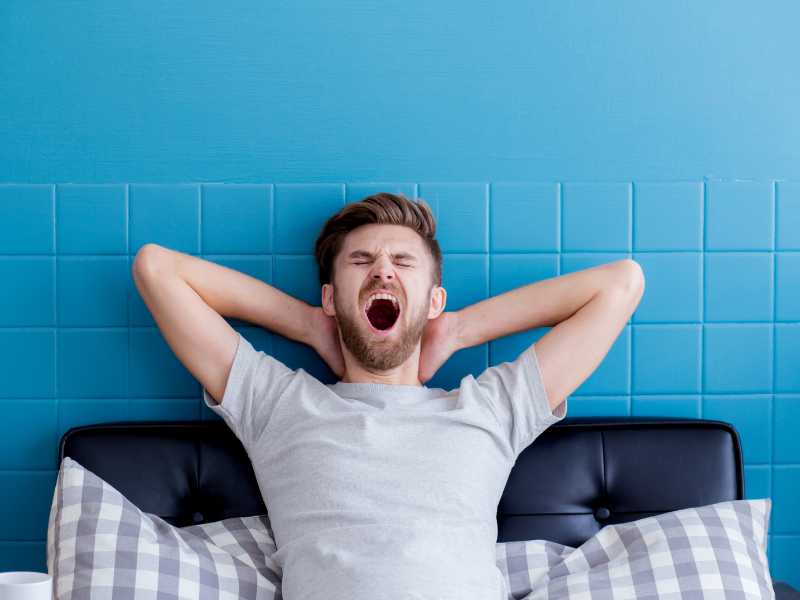What to Do When You Can't Sleep Through the Night: Effective Strategies for Restless Nights
Struggling to sleep through the night can be a frustrating experience, affecting not just physical energy levels but also mental health. When sleep evades you night after night, it's not uncommon to feel the effects ripple through your daily life, impacting mood, cognitive function, and overall well-being.
Establishing effective sleep habits is crucial in fostering better sleep quality and achieving a more restorative night's rest. Sometimes the keys to overcoming sleeplessness are found in the preparation for sleep. Activities that promote relaxation, such as reading, taking a warm bath, or practicing meditation, can signal to the body that it's time to wind down. On the flip side, certain habits—like engaging with electronics before bed or consuming caffeine late in the day—can be disruptive to sleep patterns.
Creating a consistent bedtime routine is an integral step towards improving sleep quality.
Although occasional sleep disturbances are common, persistent difficulties with sleeping through the night may indicate insomnia. People experiencing such sleep disruptions are advised to consider their overall sleep environment and daily routines.Tailoring these aspects to support a restful night can make significant differences. Should sleeplessness continue, seeking guidance from healthcare providers is recommended to address and manage potential underlying conditions affecting sleep.
Understanding Sleep Challenges
Many individuals struggle with getting adequate sleep due to various sleep disorders or disruptions in their circadian rhythm. Identifying specific issues and their symptoms can be the first step toward finding a solution.
Identifying Common Sleep Disorders
Sleep disorders such as insomnia, sleep apnea, and restless legs syndrome (RLS) disrupt the quality and quantity of sleep one can attain.
Chronic insomnia affects a person's ability to fall asleep or stay asleep, while sleep apnea is characterized by pauses in breathing during sleep. Age can also play a role, as sleep patterns tend to change as one gets older.
Recognizing Symptoms and Triggers
Symptoms of sleep disorders vary but often include difficulty falling asleep, staying asleep, or experiencing non-restorative sleep. Triggers for these symptoms can include high levels of anxiety, certain mental health disorders, and lifestyle factors such as caffeine intake or exposure to screens before bedtime. Sleep maintenance insomnia is when individuals wake up during the night and have trouble returning to sleep.
Circadian Rhythm and Its Role
The circadian rhythm—our internal clock—regulates our sleep-wake cycle and is influenced by external cues like light and darkness. Disruption in this rhythm can lead to difficulty falling asleep at conventional times, which can be common in shift workers or during travel across time zones. Adjusting the circadian rhythm is crucial for remedying sleep issues.
Strategies for Better Sleep
Achieving better sleep can significantly improve one's health and well-being. It involves creating a comforting sleep environment, implementing relaxation and lifestyle adjustments, and considering medical and therapeutic options when necessary.
Creating a Restful Sleep Environment
Your sleep quality is often directly influenced by your sleep environment. It’s fundamental to make sure your bedroom is dark, quiet, and cool.
Blackout curtains or eye masks can be helpful to block out light, and earplugs or white noise machines can mitigate any disturbing sounds. Additionally, the use of comfortable bedding and a mattress that supports the body can facilitate deeper sleep.
Sleep hygiene plays a critical role here. This includes adhering to a regular sleep schedule, avoiding caffeine and alcohol close to bedtime, and limiting exposure to screens before sleep. The blue light they emit is harmful to restorative sleep.
Relaxation and Lifestyle Adjustments
Relaxation techniques such as meditation and deep-breathing exercises can prepare the mind and body for sleep. These practices help reduce stress and promote a state of calm. In the hours leading up to bedtime, one should also engage in relaxing activities, such as reading or taking a warm bath.
Regular exercise enhances sleep quality, but it should not be done too close to bedtime, as it may have the opposite effect. Incorporating a balanced diet that doesn't have excessive sugar and stimulants can also contribute to better sleep. Techniques like progressive muscle relaxation can also be utilized to relax the body.
Medical and Therapeutic Options
When sleep disturbances persist, it may be necessary to explore medical and therapeutic interventions.
Cognitive Behavioral Therapy for Insomnia (CBT-I) is an effective treatment that addresses the thoughts and behaviors that can disrupt sleep. It teaches strategies to improve sleep habits and reduce anxiety about sleep.
For some, the use of sleep aids or medication might be beneficial, yet these should be considered with caution and under the guidance of a healthcare professional.
Melatonin supplements can help regulate the sleep-wake cycle, especially in cases where the circadian rhythm is disrupted. It’s essential to use these aids responsibly, as they can come with side effects and risk of dependency.



















